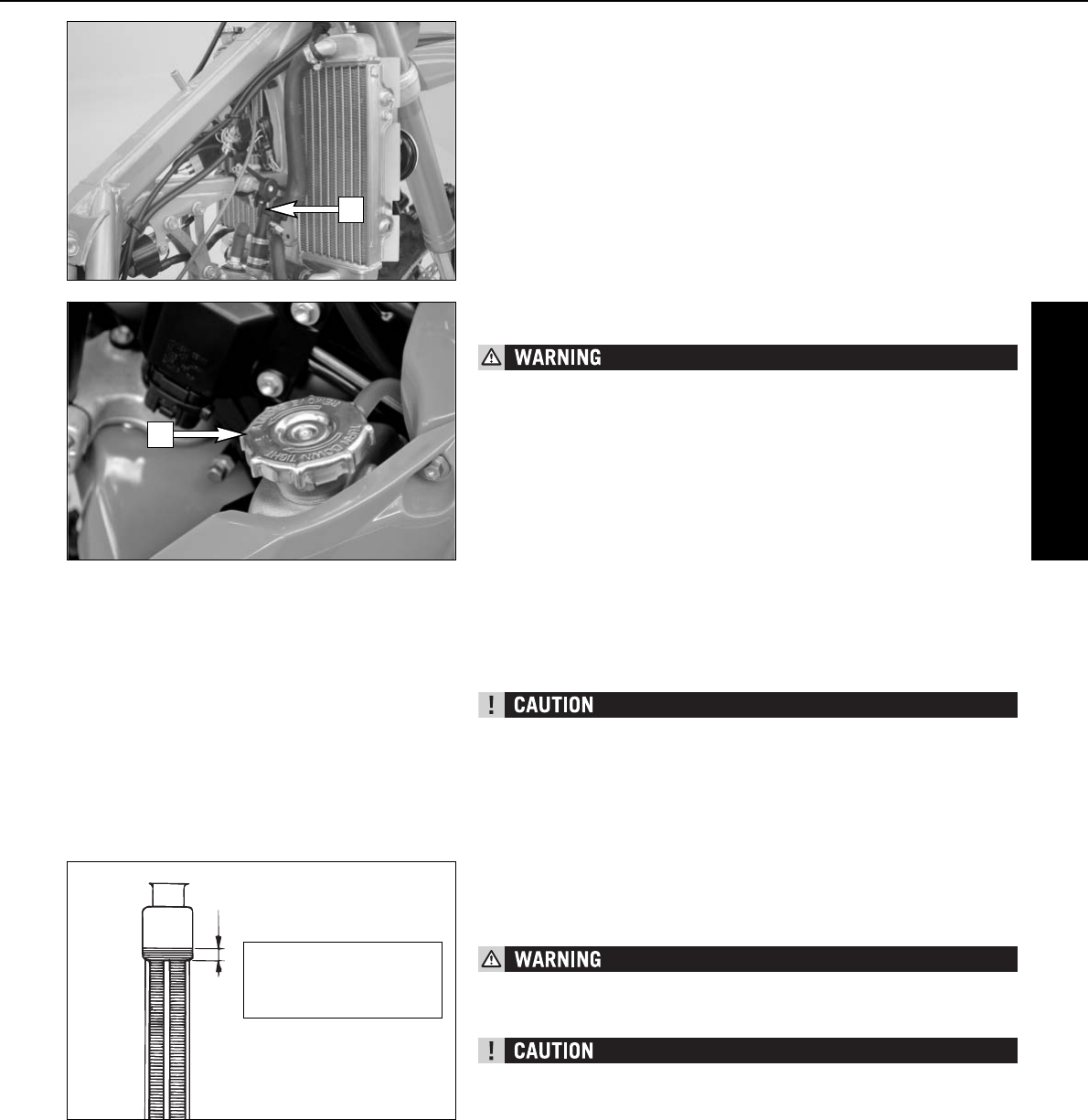
ENGLISH
39
Cooling system
The water pump in the engine circulates the cooling liquid. However, the cool-
ing liquid can only circulate properly if the cooling circuit contains no air
bubbles.
Bleeding of the cooling system is therefore required
a) after adding more than 0.25 l cooling liquid and
b) after refilling the entire cooling system.
(see Bleeding the cooling system).
Some models are equipped with a thermostat [1] so that the engine reaches
its operating temperature more quickly. When the engine is cold, the liquid
coolant circulates in the cylinder and the cylinder head. As soon as the
cooling liquid has reached a temperature of approximately 55°C, the thermo-
stat opens and the cooling liquid is also pumped through the two aluminum
radiators.
The cooling liquid is cooled by the air stream. This means that the cooling
effect decreases with the traveling speed. Dirty radiators additionally reduce
the cooling effect.
– If possible, always check level of cooling liquid when engine is cold. If
you have to open the radiator cap [2] when the engine is hot, use a rag to
cover the cap and open slowly to release pressure. Caution - scalding haz-
ard.
– Do not detach any radiator hoses while the engine is hot. The escaping
hot coolant and the steam may cause serious burns.
– In case you get burnt, hold the affected part of your body under running
cold water right away.
– Coolant is toxic. Keep the coolant out of the reach of children.
– In case coolant is ingested, consult a doctor immediately.
– If coolant gets into your eyes, rinse them out with water immediately and
go see a doctor.
Use a mixture of 50% antifreeze and 50% distilled water for the cooling liq-
uid. The antifreeze should be designed for temperatures of at least -25°C. This
mixture offers frost protection as well as good corrosion protection and should
not be replaced by water alone.
For the cooling system, use only with high-grade antifreeze (e.g. Motorex Anti-
Freeze). Using lower-grade antifreeze agents can cause corrosion and coolant
foaming.
Pressure induced by heating of the coolant in the system is controlled by a
valve in the radiator cap [2]; a water temperature of up to 120° C (248° F)
is admissible without, having to expect any trouble.
Checking the coolant level
The coolant should be 10 mm (0.4 in) above the radiator fins when the engine
is cold (see diagram). In the event of the coolant being drained, always fill
and bleed the system.
If possible, always check the level of cooling liquid when the engine is cold.
If you have to open the radiator cap when the engine is hot, use a rag to cover
the cap and open slowly to release pressure.
The cooling system must be bled after draining the cooling liquid or after adding
more than 0.25 l (0.06 US gallons) cooling liquid.
MAINTENANCE WORK ON CHASSIS AND ENGINE
»
10 mm
when engine ist cold
1
2


















